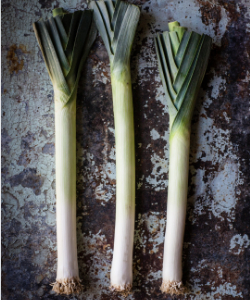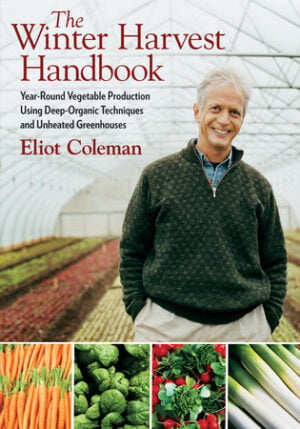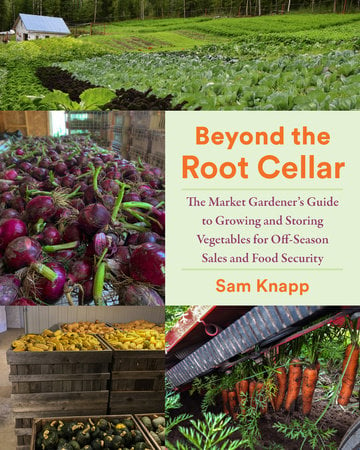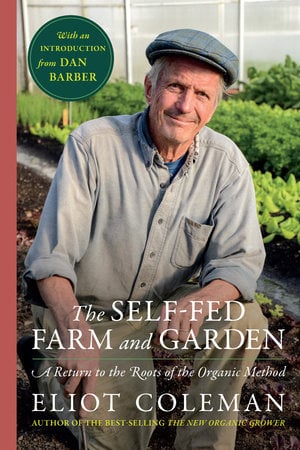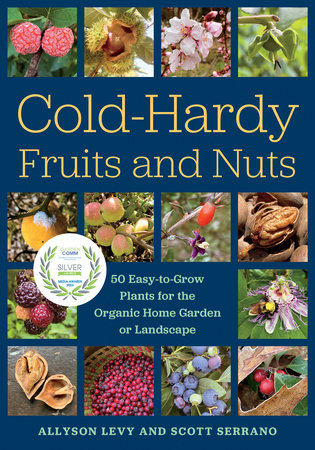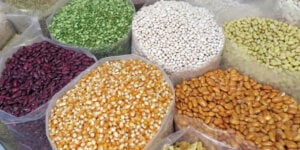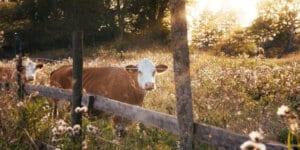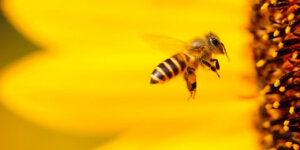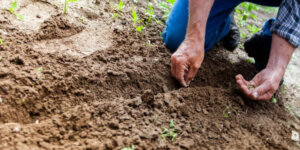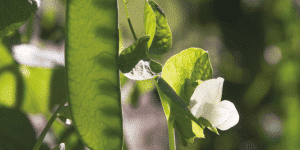Leeks: The Ultimate Winter Crop
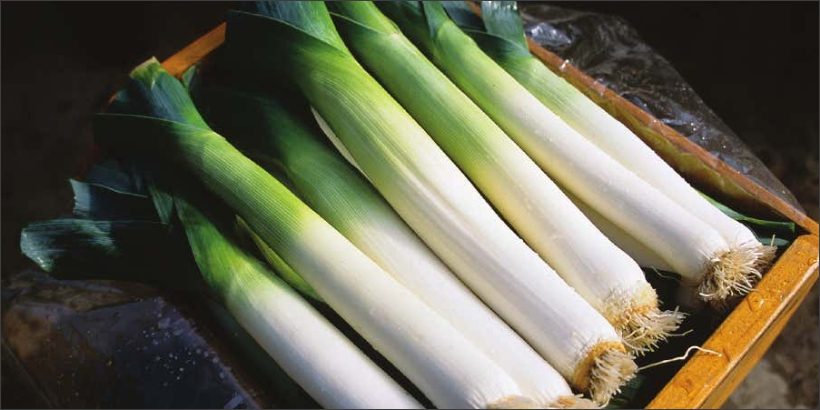
Looking for a veggie to grow and harvest through winter? Try leeks!
With some careful planning, a bit of elbow grease, and some insight from Eliot Coleman, you’ll enjoy leeks from your garden all year long.
The following is an excerpt fromThe Winter Harvest Handbook by Eliot Coleman. It has been adapted for the web.
What Are Leeks?
Leeks are almost a year-round crop for us and would be all-year if the winter leeks did not sell out so quickly.
We get our first crop in May from transplanting extra early seedlings to a cold house. (Seeds are sown February 15 in our plant-starting greenhouse.) Then we sell outdoor-grown summer leeks through September and the fall leeks through November.
Leeks In Every Season
Winter leeks are available from early December until we are sold out, usually in early March. We use a different leek variety for each season.
The summer and fall leeks are harvested directly from the field with the additional protection of a sheet of plastic over the last of the fall leeks during the second half of November.
We protect the winter leeks with a movable greenhouse starting in early December. We add an inner layer from mid-December on until all the leeks are sold.
Cooking & Eating Leeks
The edible part of a leek is the white blanched stem. The more length a blanched leek stem has, the better the product.
Blanching can be accomplished by hilling soil up against the stems of the leeks. However, in our experience, the key to growing leeks efficiently and intensively is to grow your own transplants and dibble them into deep planting holes.
By dibbling in the transplants rather than having to hill-up soil as the leeks grow, we are able to plant them more intensively—as closely as three rows on a 30-inch bed with the leeks 4 inches apart in the row.
Growing Leek Transplants
Unlike many of our other crops, we don’t grow our leek transplants in soil blocks.
Instead, we grow them on the floor in our plant-starting greenhouse in 30-inch-wide-by-8-foot-long-by-3- inch-deep seedbeds with wooden sides filled with potting soil.
We sow leek seeds directly into these beds using the six-row seeder. We allow the seedlings to grow in these beds until they are at least 10 inches tall.
We dig them out of the seedbed by loosening the potting soil under them with a trowel.
To prepare the young plants for transplanting, we trim their roots to 1 inch long and trim the top part to 10 inches long.
The Dibble Method
Our dibble is a 36-inch-long, 1-inch-diameter dowel with the end tapered to a spatulate tip.
We sometimes attach a shovel handle to the upper end of the dowel and add a 6-inch-diameter plate 9 inches above the tip.
In use, we push it into the soil to the full 9-inch depth and then twist the handle so the spatulate tip flattens out the bottom of a 9-inch-deep tubular hole.
Make Sure the Soil is Moist
This is more successful if the soil is moist, as dry soil will tend to collapse back into the hole when the dibble is removed. Thus, we water the surface before transplanting when conditions are dry.
We make a hole every four inches along the row and simply drop a leek transplant vertically into each hole.
Starting Leek Plants
Once the seedlings are in the holes, only an inch or so of green top sticks up above the soil. Then we irrigate the field and let the leeks grow.
We don’t intentionally refill the holes, but soil slowly migrates in every time we irrigate or cultivate.
The leek plants grow beautifully, each with a guaranteed nine inches of blanched shank. If you have never grown leeks this way before you may find it hard to believe that it will work—but it does.
Baby Leeks
Our restaurant customers love early baby leeks. These we grow in a cold greenhouse at five rows to a 30-inch bed, setting them 3 inches apart in the row.
At that spacing they can be cultivated with the long-handled wire weeder. Once when we had no other space, we planted single rows of leeks between the edge bed and the wall of the greenhouse.
The dibble-and-drop method is the only way we could have done that.
Recommended Reads
Recent Articles
Tips for Seed Saving · You either have dry seeds or wet seeds. Proper drying & storing is essential so they can germinate months (or even years) down the road.
Read MoreWhen you have a family Cow, you have it all. The cow is the most productive, efficient creature on earth. She will give you fresh milk, cream, butter, and cheese, build human health and happiness, and even turn a profit for homesteaders and small farmers who seek to offer her bounty to the local market or neighborhood.
Read MoreBeekeeping has surged in popularity as more people set up backyard hives. Embrace the buzz and transform your backyard into a thriving haven for bees!
Read MoreWhen you save seeds, you become a plant breeder! Take control of your seeds and grow the best traditional and regional varieties and even develop your own.
Read MoreSave seeds, save the future! Embracing the tradition of saving seeds is a powerful practice for both home gardeners and seasoned horticulturists alike. Take control of your garden’s destiny – start saving seeds today!
Read More

